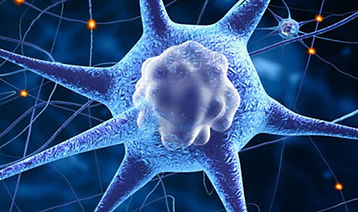
Benefits of Ketamine Infusion Therapy
Result in a couple of hours
If you have tried several antidepressants before, then you know that it takes anywhere from four to six weeks to start seeing the full effect of the medicine—if you see any effects at all. Someone who is suicidal does not have the luxury of waiting several weeks for a medicine to kick in.
What’s so exciting about ketamine is not only that it works for people whose symptoms are not responding to traditional treatments, but it also works much more rapidly – in days or even hours,” says Dr Mayank. “For some people, ketamine does provide almost immediate relief. That’s wonderful and very gratifying to see.”

Glutamate
By inducing the production of glutamate, a neurotransmitter in the brain. Abnormal levels of glutamate have been linked with depression. The glutamate leads the brain to form new connections and repair damaged ones, increasing its adaptability.
The new neural pathways—think of them as new roads in your brain—allow you to create more positive thoughts and, therefore, behaviours. This is compared to traditional antidepressants, which only work as long as they are in your system.

Cognitive Function
In addition to improving the mood-related symptoms of depression and anxiety, ketamine can also support better cognitive function. Researchers believe this benefit is related to the way ketamine affects neural activity in the brain.
Specifically, ketamine has been shown to increase the production of brain-derived neurotrophic factor (BDNF), which is a chemical that plays a key role in cognitive functions, such as learning and memory. Other research shows that ketamine acts like a “switch” to turn on and turn off neural activity, helping to normalize nerve-to-nerve communication that plays a role in mood and thought.
And finally, ketamine also supports the development of new pathways for nerve communication, which is a process called synaptogenesis. This change can improve the communication necessary for normal cognitive function.
Taken together, ketamine can help improve a person’s cognitive and emotional health.

Neuroplasticity
Ketamine can also stimulate the production of brain-derived neurotrophic factor
dr Mayank says. This protein plays a role in neuroplasticity, or your brain’s ability to adapt as you experience new things. By supporting neuroplasticity, ketamine may help change negative thought patterns that contribute to depression.
Scientists believe that depression may be due to a connection problem between nerve cells in areas of the brain that regulate mood. Research suggests that people with long-term depression may have fewer synapses that allow these nerve cells to communicate.
Medically supervised ketamine infusion therapy has been found to reactivate existing connections and to grow new ones, helping the brain to “shake loose” negative thoughts and shift out of depression. Because the brain has been “reshaped,” it may explain why antidepressant medications that didn’t work in the past, may help after ketamine therapy.

Treatment-resistant depression
Treatment-resistant depression (TRD) is a type of major depressive disorder (MDD). It happens when at least two different first-line aren’t enough to manage the condition antidepressants during a depressive episode. The two treatments must be of adequate dosage and duration (at least six to eight weeks) before a healthcare provider can diagnose TRDKetamine delivered in low doses can provide rapid relief of TRD lasting for days to weeks.

Suicidal ideation
Suicidal ideation and behavior are among the most severe psychiatric presentations, warranting emergency room visits and psychiatric admission for higher levels of care. In the india, suicide rates continue to climb, especially in younger patients, and the continued psychosocial stressors of the COVID-19 pandemic may further exacerbate this crisis. Suicidal ideation and behavior are core features of a major depressive episode, but there are limited treatment options to rapidly redress these life-threatening symptoms. Ketamine have robust antidepressant efficacy in treatment-resistant major depressive disorder and bipolar depression. Additionally, both ketamine and esketamine have demonstrated rapid-acting antisuicidal efficacy in major mood disorders. In August 2020, this culminated in a first-in-class approval of Spravato (intranasal esketamine) for the treatment of major depressive disorder with acute suicidal ideation and behavior.

